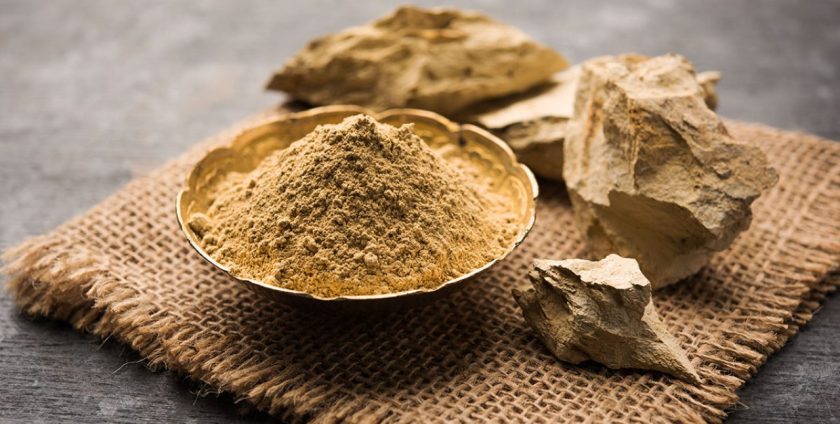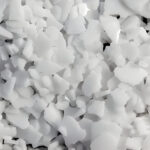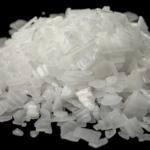
Importance of Bentonite in Drilling Fluid Mud
Bentonite is a naturally occurring clay that has gained immense importance in various industrial applications due to its unique properties. One of its most significant applications is in drilling fluid mud, where it plays a critical role in the drilling process.
In this comprehensive blog, we will delve into the details of bentonite, its importance in drilling fluid mud, its types, applications, advantages, and disadvantages, and provide insights into price factors. We will also highlight why Peak Universal Business is a leading supplier of high-quality bentonite.
(Importance of Bentonite in Drilling Fluid Mud:Viscosity and Suspension, Filtration Control, Cooling and Lubrication, Hydrostatic Pressure Maintenance, Shale Stabilization)
What is Bentonite?
Bentonite is a type of clay that is primarily composed of montmorillonite. It is formed from volcanic ash that has been weathered and aged in the presence of water. Bentonite has the ability to swell and absorb water, making it an essential material in various industrial applications.
Types of Bentonite
There are several types of bentonite, each with specific properties and applications:
1. Sodium Bentonite
- Properties: High swelling capacity, excellent colloidal properties, high water absorption.
- Uses: Drilling mud, foundry sand, waterproofing, and geotechnical engineering.
2. Calcium Bentonite
- Properties: Lower swelling capacity compared to sodium bentonite, higher green sand properties.
- Uses: Animal feed, fertilizer, wine clarification, and cosmetic products.
3. Potassium Bentonite
- Properties: Intermediate swelling capacity, used in specific industrial applications.
- Uses: Pottery, ceramics, and specific drilling fluid formulations.
Bentonite & Its Importance in Drilling Fluid Mud
Drilling fluid mud, commonly known as drilling mud, is a critical component in the drilling process. It is used to lubricate and cool the drill bit, carry drill cuttings to the surface, and maintain hydrostatic pressure to prevent the influx of formation fluids. Bentonite is a key ingredient in drilling mud due to its unique properties.(Viscosity and Suspension, Filtration Control, Cooling and Lubrication, Hydrostatic Pressure Maintenance, Shale Stabilization)
1. Viscosity and Suspension
- Viscosity and Suspension – Bentonite increases the viscosity of drilling mud, which helps in suspending and carrying drill cuttings to the surface. This prevents the accumulation of cuttings at the bottom of the wellbore.
2. Filtration Control
- Bentonite forms a thin filter cake on the walls of the wellbore, which helps in controlling fluid loss to the formation. This minimizes the risk of wellbore instability and formation damage.
3. Cooling and Lubrication
- Cooling and Lubrication – Bentonite-based drilling mud helps in cooling and lubricating the drill bit, reducing friction and wear. This enhances the efficiency and lifespan of the drilling equipment.
4. Hydrostatic Pressure Maintenance
- The high-density drilling mud created with bentonite helps in maintaining hydrostatic pressure in the wellbore. This prevents the influx of formation fluids and maintains well control.
5. Shale Stabilization
- Bentonite helps in stabilizing shale formations by preventing the dispersion of shale particles into the drilling fluid. This reduces the risk of wellbore collapse and maintains well integrity.
Applications of Bentonite in Drilling Fluid Mud
1. Oil and Gas Drilling
- Bentonite is extensively used in the oil and gas industry for drilling mud formulations. It helps in efficient drilling operations, wellbore stability, and cuttings removal.
2. Geothermal Drilling
- Bentonite-based drilling mud is used in geothermal drilling to maintain wellbore integrity and prevent fluid loss to the formation.
3. Water Well Drilling
- Bentonite is used in water well drilling to ensure efficient cuttings removal, wellbore stability, and prevention of fluid loss.
4. Mineral Exploration
- Bentonite-based drilling mud is used in mineral exploration to maintain well control and prevent formation damage during drilling operations.
Advantages of Using Bentonite in Drilling Fluid Mud
1. High Swelling Capacity
- Bentonite’s high swelling capacity helps in forming a thick, viscous drilling mud that is effective in suspending and carrying drill cuttings.
2. Excellent Filtration Control
- Bentonite forms a thin filter cake that effectively controls fluid loss and maintains wellbore stability.
3. Environmentally Friendly
- Bentonite is a natural, non-toxic material that is safe for the environment and poses minimal risk to human health.
4. Cost-Effective
- Bentonite is readily available and cost-effective, making it an economical choice for drilling fluid formulations.
5. Versatility
- Bentonite can be used in various types of drilling operations, including oil and gas drilling, geothermal drilling, and water well drilling.
Disadvantages of Using Bentonite in Drilling Fluid Mud
1. Swelling Issues
- In some formations, bentonite’s swelling capacity can cause problems such as wellbore constriction and increased torque on the drill bit.
2. Formation Damage
- In certain formations, bentonite-based drilling mud can cause formation damage due to the formation of a thick filter cake.
3. Temperature Sensitivity
- Bentonite’s properties can be affected by high temperatures, which can impact its performance in high-temperature drilling operations.
4. Compatibility Issues
- Bentonite may not be compatible with certain drilling fluids and additives, which can impact the overall performance of the drilling fluid system.
Price Factors of Bentonite
Several factors influence the price of bentonite, including:
1. Quality and Grade
- Higher-quality and specific grades of bentonite typically command higher prices.
2. Supply and Demand
- Market demand and supply dynamics play a crucial role in determining the price of bentonite.
3. Production and Processing Costs
- The cost of mining, processing, and refining bentonite can impact its final price.
4. Transportation and Logistics
- The cost of transporting and storing bentonite can also affect its price.
Sourcing Bentonite
When sourcing bentonite, it is essential to consider the following factors:
1. Quality Assurance
- Ensure that the supplier provides high-quality bentonite that meets industry standards and specifications.
2. Reputation and Experience
- Choose a supplier with a solid reputation and extensive experience in the industry to ensure reliable and consistent supply.
3. Technical Support
- Look for a supplier that offers technical support and guidance to help you select the right grade of bentonite for your specific applications.
4. Sustainable Practices
- Consider suppliers that follow sustainable practices and are committed to reducing their environmental impact.
Why Choose Peak Universal Business as Your Bentonite Supplier?
Peak Universal Business is a leading supplier of high-quality bentonite, offering a wide range of grades to meet diverse industrial needs. Here are some reasons to choose Peak Universal Business as your supplier:
1. High-Quality Products
- Peak Universal Business ensures that all its products meet the highest quality standards, providing reliable and durable bentonite for various applications.
2. Extensive Industry Experience
- With years of experience in the industry, Peak Universal Business has the expertise and knowledge to meet the specific requirements of its clients.
3. Technical Support
- The company offers excellent technical support, assisting clients with product selection, technical advice, and after-sales service.
4. Sustainable Practices
- Peak Universal Business is committed to sustainable practices, ensuring that its products are environmentally friendly and comply with industry regulations.
Conclusion
Bentonite is a versatile and essential material in the drilling industry, playing a crucial role in the formulation of drilling fluid mud. Its unique properties, including high swelling capacity, excellent filtration control, and environmental friendliness, make it an ideal choice for various drilling applications. Understanding the different types, uses, advantages, and disadvantages of bentonite is crucial for making informed decisions in the drilling industry.
By choosing Peak Universal Business as your supplier, you can ensure the success of your drilling operations with high-quality bentonite, backed by years of industry expertise and a commitment to quality and sustainability.
Importance of Bentonite in Drilling Fluid Mud:Viscosity and Suspension, Filtration Control, Cooling and Lubrication, Hydrostatic Pressure Maintenance, Shale Stabilization
You can Read More about Our products Here:
What is Drilling Mud and Why is it Important?
Drilling Mud and Its Importance
What are the 7 functions of Drilling Fluid Mud?
If You have any other Query or Question you want to ask, Please don’t hesitate to Contact Us.
- 0 comment





Leave a Reply